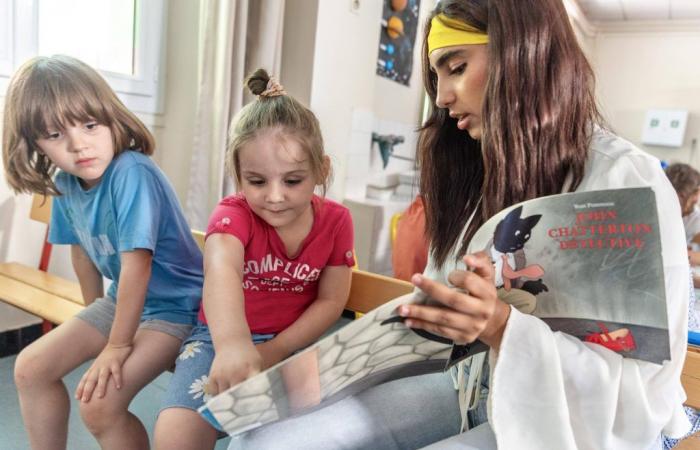The device allows you to take a step back… to stop and think
Integrated into the Employment Qualification Training network (Foquale), the Mission to combat school dropouts (MLDS) carries out remediation and upgrading actions (ARRN) with students attending school in the region*.
A still little-known formula
“This system is aimed at young people who have lost their apprenticeship or career path, or who are looking to bounce back after a break in their education,” explains Virginie Adalid Moreno, integration trainer coordinator (CFI) within the structure. And this, whatever the reason, whether dropping out, harassment, moving during the year, or even illness.
For two years, the MLDS has developed the Alternating Civic Service.
The manager cites as an example the case of two teenagers, Meriem, (see above)followed by the Lit Up** association, but also that of Thomas: “He was 17 years old when he did his alternate civic service with Les Petits Frères des Pauvres last year, remembers Virginie Adalid Moreno. The mission was accessible to those under 18.”
For young people to be actors
Interestingly, the formula, whether full-time or work-study, unfortunately remains unknown to communities. “The fact that there is a support person behind, a resource person, that should be reassuring…”, says Virginie, who hopes to make things happen.
Intended for all those for whom support is necessary, the training takes place in two stages: the young person spends three days at their mission site, and two days within the MLDS structure.
“The mission that the young person will carry out does not require any particular skills or diploma, assures the coordinator attached to the Nice academy. It’s a parenthesis that allows you to take a step back, to settle down…”
Advantage of such a device? “Boost support and ensure that young people become actors in their journey, she continues. They gain transversal and psychosocial skills. They also develop professional skills that they can put forward in a future apprenticeship search.”
While she underlines the commitment of the Résine Jardins association, which has been offering training to minors for several years, the manager deplores the lack of missions offered for 16-18 year olds. “It’s a rare commodity! There are very few associations which employ this age group, perhaps for reasons of mobility or maturity?
This is the case for National Education: “It’s a shame, because for young people who have a not necessarily glorious history with school, supporting young kindergarten students can reconcile them with the school environment.”
As for how to benefit from the system put in place by the MLDS, it is no surprise: “If the young person has dropped out, whether or not they wish to continue their education, there must be an exchange and they must return to their school or to the CIO, insists the coordinator. This allows young people to go back to school. The school solution remains a solution.”
*Students from the region’s 9 middle schools, 4 high schools, the Magnanarelles agricultural high school and the CFA des Arcs can benefit from it.
**The Lit uP association remobilizes, guides and enables the return to employment of young people aged 16 to 25 thanks to civic engagement.






